It’s been a breakthrough year for education research. It is still very much a minority pursuit but the idea that teachers’ practice should be informed – where possible – by evidence, has become mainstream. At the beginning of the year there were, perhaps, a handful of “research leads” in schools; now there are more than 100. Those who are engaged in producing and disseminating research are increasingly networked through Teachmeet, organisations such as ResearchED and hundreds of high-quality blogs dissecting new research.
As one of the social sciences, education will never have the kind of research that permanently settles ideological debates but there is an ever-growing corpus of material that can help us to argue from something other than instinct and prejudice.
This year has seen some valuable additions.
Professor Robert Coe wrote an extremely useful synthesis of research on effective teaching for the Sutton Trust. It doesn’t contain anything new but should be the first port of call for teacher trainees and NQTs interested in getting an overview of the literature before diving into the detail. There also was an interesting synthesis on primary pedagogy from Imram Siraj and Brenda Taggart.
A growing focus on “character” development surfaced this year, with Carol Dweck’s ideas on “growth mindset” becoming ever more influential in schools and politicians from all parties jumping on a seemingly uncontentious bandwagon. But a brilliant review of the available evidence from the Institute of Education reminded us how little we actually know about whether “character traits” can be taught – or even influenced – by schools.
Politicians are also eager to talk about workload at present. The delayed publication of the Teacher Workload Survey – which found average reported hours stretching to 60 a week – pushed the problem to the top of the agenda. Perhaps the most interesting finding in the survey, though, was the stark difference in the way heads and classroom teachers responded to a question on how they would improve teaching and learning (See figure 9 below)
English teachers work the third highest hours of all TALIS countries, revealed the OECD’s latest TALIS (Teaching and Learning International Survey) report, with more time spent on planning, marking and administration. The survey also found teachers in England were much less likely to engage in professional development around pedagogy and subject knowledge; and, perhaps even more worryingly, they wanted less training than teachers in other countries.
One of my favourite studies this year focused on the other big OECD dataset – PISA. While misuse of PISA by the government and journalists has led to it becoming something of a dirty word for teachers the underlying data remains a valuable resource. John Jerrim from the Institute of Education used this data to show that East Asian pupils in Australia not only massively outperform children of Australian heritage but also pupils in Hong Kong, Singapore and South Korea. Jerrim puts this finding down to a wide range of factors including socio-economic characteristics, cultural differences and better use of school choice by parents. (See figure 2 below)
Closer to home there were three studies on possibly the most interesting question in English education policy, why has London been improving so much faster than other areas? CfBT and the Centre for London were first with a predominantly qualitative piece pointing to an interlinking series of policy changes and school practices in the early part of the past decade.
The Institute for Fiscal Studies, in an entirely quantitative study, suggested improvements in London secondaries where something of a chimera and the real change had been driven by primary schools.
And finally, Professor Simon Burgess from Bristol argued that the primary driver was demographic change, with the higher performance of some ethnic minorities explaining all of the change (depending on which metric is used).
While at first the three studies seem entirely contradictory they are different parts of a very complicated jigsaw (that we’ll never complete). The truth is probably some combination of all three.
Beyond schools, other datasets have allowed researchers to investigate how different groups perform at university in greater detail. The Higher Education Council for England (HEFCE) produced a report confirming previous studies that students who attended private schools get worse degrees than state school peers who achieved the same UCAS tariff – including at the most selective institutions. (See figure 5 below) Troublingly the analysis also found underperformance amongst some ethnic minorities.
Later in the year the Institute for Fiscal Studies found that students from poor backgrounds are more likely to drop out of courses, even when controlling for all other factors, raising questions about the financial viability of higher education for all groups.
All of this material, however, only scratches the surface of the new research published throughout the year. Finding ways to mediate the vast quantities of such material will be crucial to the continued growth of research cultures in schools. But there’s certainly gold out there if you look hard enough.

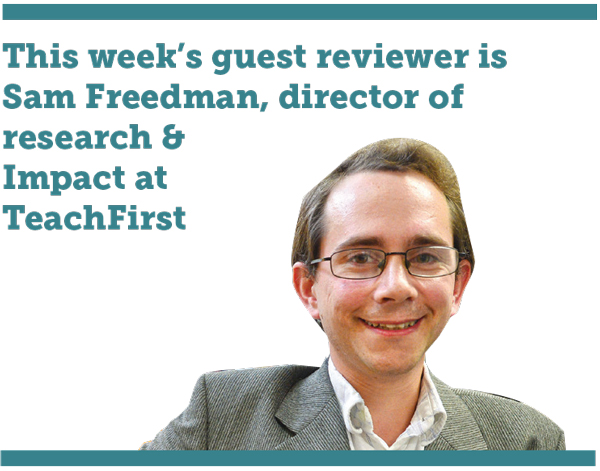
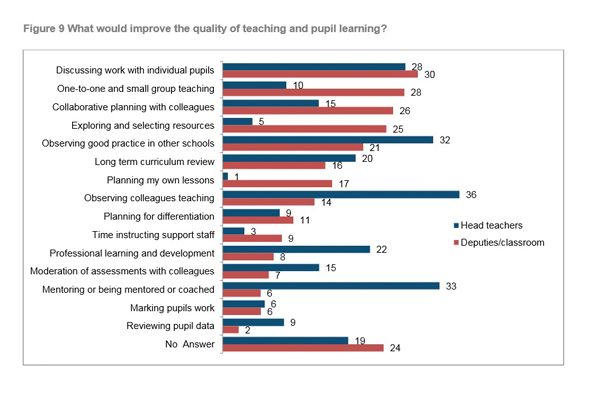
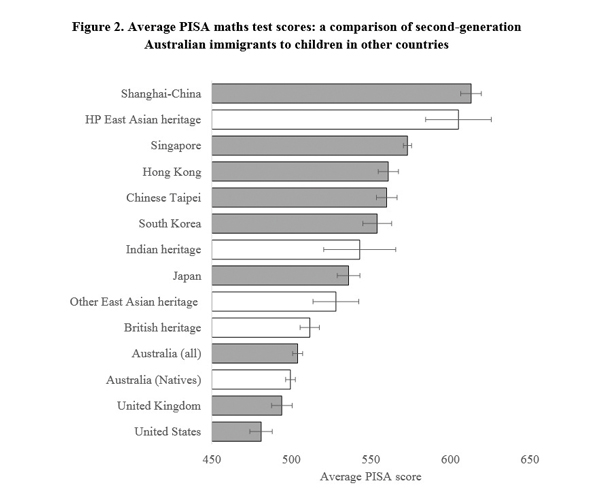
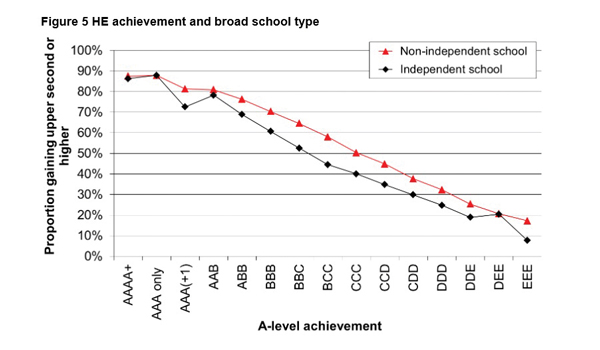
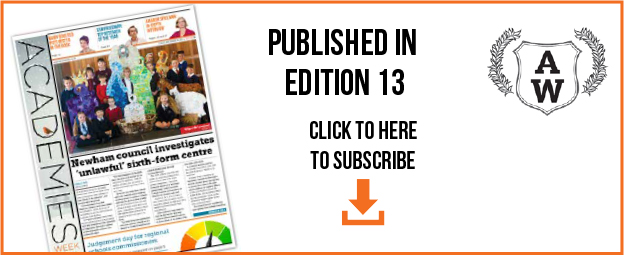











The perceived difference of view between head teachers and teachers can surely be traced back to the question, which asks what would make the most difference to “teaching and learning”. Although this phrase has now become a clichéd way of covering up our embarrassment about the whole concept of teaching – teaching and learning are in fact two quite separate things. The answers of head teachers naturally concern how to improve teaching, which the answers of teachers naturally concern how to improve learning (i.e. what constitutes good teaching in the first place).
In the survey of heads and teachers, is there an elephant missing in the list, that of pupil behaviour? When Hattie first produced his summary on effect size, behaviour was missing, as it is in Sutton Trust/CEM centre follow-up. I am not just referring to ‘improving’ behaviour but also ‘raising’ expectations and tackling issues of ‘mental’ health, all of which attended to really early give rise to prolonged year on year improvement in cohort outcomes.